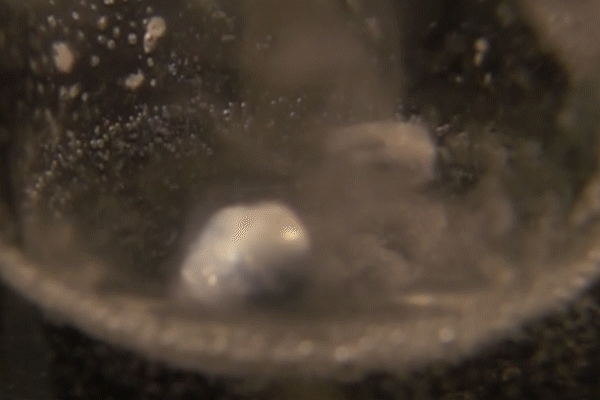
David Bradley
Science writer, photographer and wannabe rock god
David Bradley trained as a chemist but never found a labcoat to fit, so swapped spatula for red pen to work in the Royal Society of Chemistry's journals department in 1989. He soon realised he'd rather write than edit and went freelance contributing to New Scientist, Chemistry in Britain, Science, The Guardian and others. He runs sciencebase.com which began as one of the first chemistry websites, Elemental Discoveries, in 1995. He is author of the popular science book Deceived Wisdom, is a keen photographer and wannabe rock god. He has two almost-grownup children, a wife and a labrador and lives near Cambridge.
 News
NewsExplainer: Why is mixing cleaning chemicals such a bad idea?
Accidents involving cleaning products have been on the rise this year, most likely due to the Covid-19 pandemic
 Research
ResearchAntenna can power devices by harvesting ubiquitous wifi signals
Device could be used to run medical implants and wearable electronics
 Research
ResearchWorld record for longest carbon–carbon bond broken
Carborane bond surpasses previous longest bond after just nine months in the top spot
 Research
ResearchCatalyst converts methane to methanol at room temperature
Iron-studded graphene offers noble metal free route to important chemical feedstock
 Research
ResearchScaffold could fill a gap in stroke therapy and help damaged brains recover
Bioactive filler could promote recovery in damaged regions
 Research
ResearchTwo atom reaction smallest chemistry experiment ever performed
Exquisite manipulation of a single sodium and caesium atom could herald start of an era of total control over chemistry
 Research
ResearchThousands of 2D materials are just waiting to be discovered
Survey of 3D materials that can be exfoliated suggests there’s plenty of other analogues to graphene out there
 Research
ResearchA light switch for chemical reactions
Different wavelengths of light can flip the route a reaction takes
 Research
ResearchCrystalline copper compound gets knotted
Crystals as flexible as nylon could open door to new uses in wearable electronics
 Research
ResearchSynthetic ‘enzyme’ matches natural counterparts for catalytic power
Nanoparticle, nucleic acid and peptide trio mimics peroxidase enzymes

 Research
ResearchCopper brings glow to triple-bonded boron
Unexpected reaction between boron–boron triple bond and transition metals revealed

 News
NewsVX nerve agent behind Kim Jong-nam’s murder
Malaysian authorities report chemical weapon used to kill North Korean leader’s half-brother
 Research
ResearchInert helium reacted with sodium in chemistry first
Spartan field of helium chemistry given a lift with new sodium compound
 Research
ResearchTheory finds window for astatine species’ existence
Researchers take investigation of iodine–astatine–bromine trihalogen anion into the lab
 News
NewsAlgae confirmed as culprit in Rio green pool saga
Accidental addition of hydrogen peroxide destroyed hypochlorite allowing algae to thrive
 Research
ResearchTamed sodium in water comes out of the blue
Controlled conditions prevent alkali metal in water exploding letting researchers film and examine reaction with new eyes
 News
NewsGreen diving pool debacle at Rio Olympics
Chemistry underpinning rapid change in pool’s colour remains murky
 Research
ResearchMolecules built from supersized atoms
Superatomic structures could find applications in catalysis, energy conversion and storage